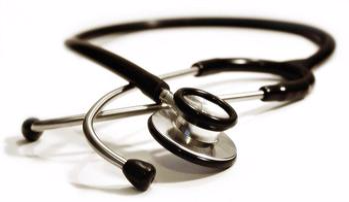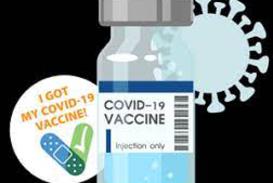WORLD CANCER DAY: THURSDAY FEBRUARY 4, 2021
by John G. Baresky on 02/04/21
Global
recognition of the worldwide threat to healthcare
World
Cancer Day is Thursday, February 4th, 2021. It is a universal day of
observance to bring attention to the increasing worldwide prevalence of cancer and the successes, disappointments and challenges of cancer
treatment.
The
global event is led by the Union for International Cancer Control (UICC). World
Cancer Day was launched in 2000.
Key
elements to learn and think about on World Cancer Day
Cancer is truly a universal threat around the world. Countless patients and families are impacted by the disease and numerous nurses, doctors, pharmacists and other clinicians battle it as healthcare professionals and dedicated oncology practitioners.
These are some of the primary elements involved with cancer care and treatment which become more granulated and specialized when applied to specific patients, their families and the healthcare professionals that treat them:
- Awareness and prevention
- Access to medical care
- Early diagnosis
- Assertive, targeted treatment
- Complexity of care
- Patient and clinician support
- Survivorship and ongoing care
- Medical academics
- Medical and pharmaceutical research
- Commercial and government healthcare insurance and prescription benefits, out-of-pocket treatment costs
There are numerous forms of cancer; each with
its own treatment requirements
The variety of cancers and the types of cancer cells they are comprised of is enormous. Each has to be managed and treated differently. It is not uncommon for oncologists to specialize in a single form of cancer due to clinical complexity, treatment demands and patient needs. This list provides a snapshot of cancer types; many more exist:
- Bladder cancer
- Breast cancer
- Colorectal cancer
- Endometrial cancer
- Kidney cancer
- Leukemia
- Liver cancer
- Lung cancer
- Melanoma
- Non-Hodgkin lymphoma
- Oral and oropharyngeal cancer
- Pancreatic cancer
- Prostate cancer
- Thyroid cancer
Data from the UICC reveals an ongoing, growing battle as the number of cancer patients worldwide continues to increase
Despite advances in care and greater medical knowledge of cancer, it persists as a major clinical risk and healthcare expense. These are some of the latest statistics from UICC:
- More than 1 out of 6 deaths are due to cancer
- In the last 20 years, the number of people diagnosed with cancer nearly doubled, from roughly 10 million in 2000 to 19.3 million in 2020
- The number of deaths from cancer has increased from 6.2 million in 2000 to 10 million in 2020
- One in 5 people globally will develop cancer in their lifetime
- Forecasts reveal trends that the number of patients being diagnosed with cancer will increase and could be nearly 50% higher in 2040 than in 2020
Breast cancer has become the number one diagnosed cancer worldwide
The World Health Organization (WHO) provides important new information concerning global cancer care and challenges.
All
forms of cancer represent significant concern to patients and medical professionals.
The International Agency For Research On Cancer (IARC) and WHO recently announced that breast cancer has now surpassed lung
cancer as the number one form of diagnosed cancer.
For the United States, BreastCancer.org shares these statistics:
- Approximately 1 in 8 U.S. women (about 13%) will experience invasive breast cancer in their lifetime
- For 2021, an estimated 281,550 new cases of invasive breast cancer are expected to be diagnosed in women in the U.S. plus 49,290 new cases of non-invasive (in situ) breast cancer
- For men, about 2,650 new cases of invasive breast cancer are expected to be diagnosed in 2021; a man’s lifetime risk of breast cancer is approximately 1 in 833
- An estimated 43,600 women in the U.S. are expected to die in 2021 from breast cancer
- Breast cancer fatality rates have been steady in women under 50 since 2007 but continue to drop in women over 50
- Overall, death rate from breast cancer decreased by 1% per year from 2013 to 2018 thanks to early detection from screening and improvements in medical procedures, pharmaceutical therapies and other breast cancer patient care strategies
- As of January 2021, there are over 3.8 million women with a history of breast cancer in the United States comprised of women currently being treated and women who have finished treatment
- Don't use tobacco
- Eat a healthy diet
- Maintain a healthy weight and be physically active
- Protect yourself from the sun
- Get vaccinated
- Avoid risky behaviors (alcohol abuse, drug abuse, unprotected sex)
- Get regular medical care
- Being considerate, compassionate and supportive of cancer patients as they undergo treatment plus their ongoing challenges as cancer survivors
- Recognize, appreciate, support the efforts of medical professionals and other members of the healthcare industry who dedicate their careers to oncology
- Donate time and/or money to cancer care facilities, cancer patient programs and organizations, cancer research and oncology academics

